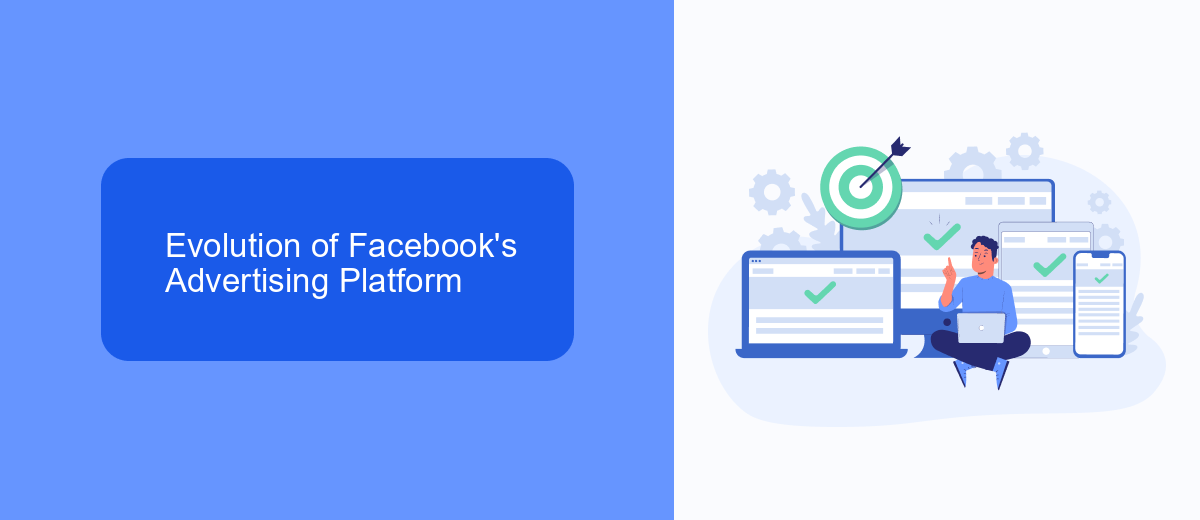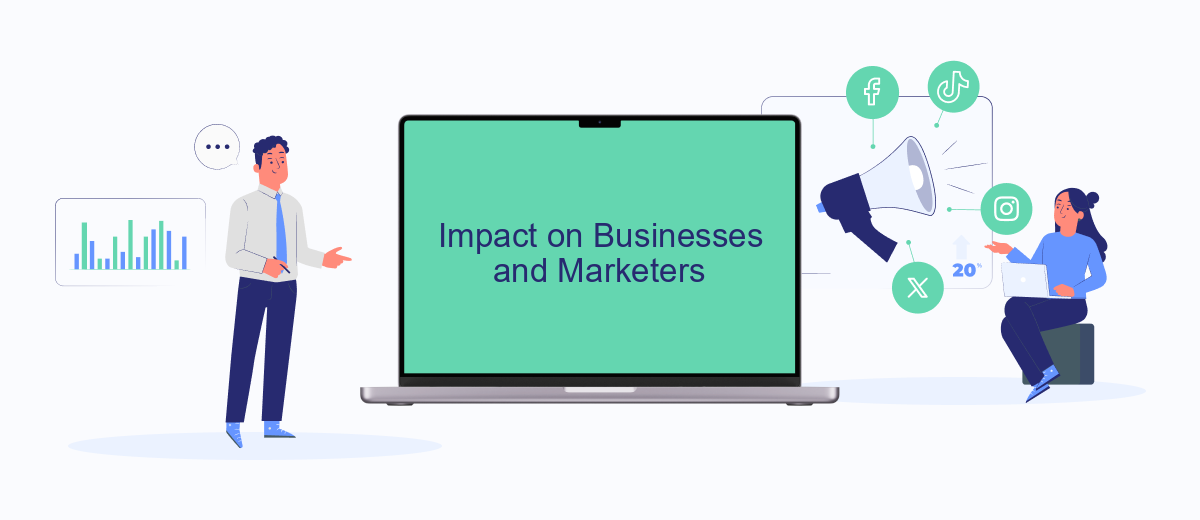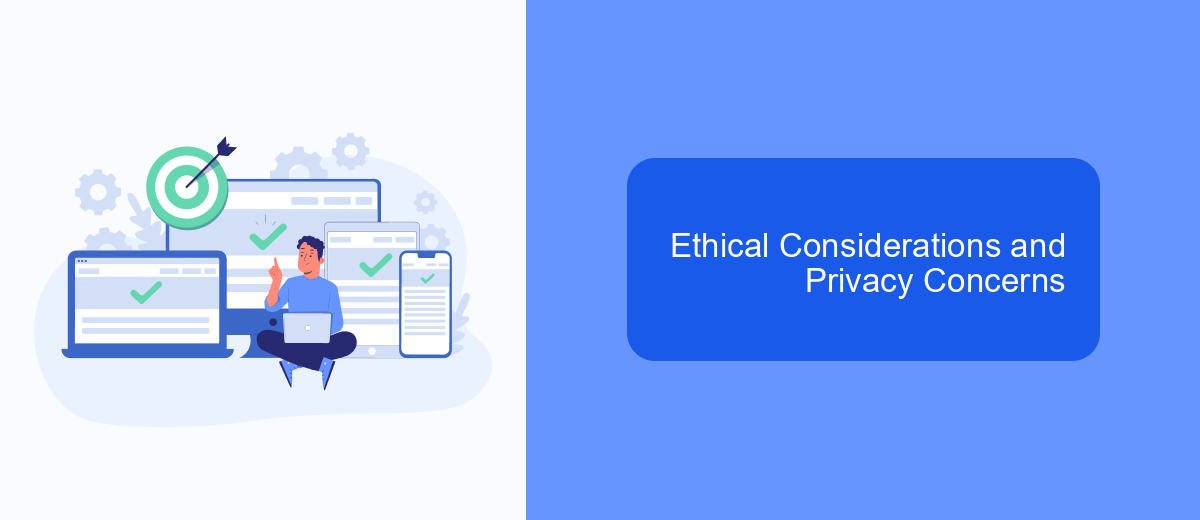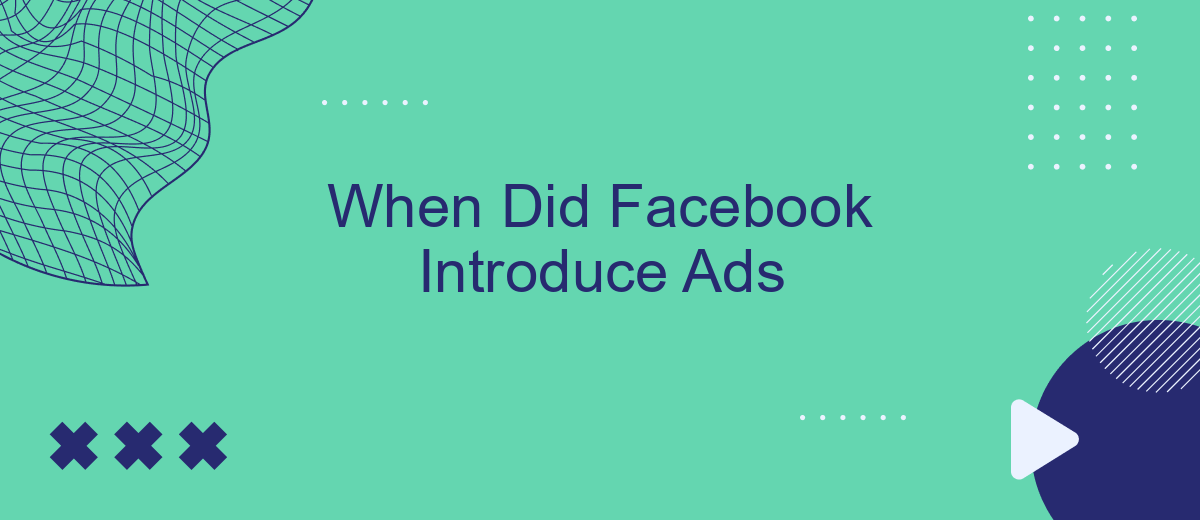Facebook, the social media giant, has transformed how we connect and communicate since its inception in 2004. However, it wasn't until 2007 that the platform began to monetize its vast user base by introducing advertisements. This pivotal move not only reshaped Facebook's business model but also revolutionized digital advertising, impacting how brands engage with consumers online.
Facebook's Ad Launch
Facebook, now known as Meta, revolutionized social media by introducing ads on its platform. This move not only transformed the company's revenue model but also changed the landscape of online advertising. The introduction of Facebook ads allowed businesses to target specific demographics, interests, and behaviors, making advertising more effective and efficient.
- Launched in 2007
- Targeted advertising capabilities
- Integration with third-party services like SaveMyLeads
- Ad formats including images, videos, and carousels
Since the launch, Facebook ads have evolved significantly, incorporating advanced analytics and integration options. Services like SaveMyLeads help businesses streamline their advertising efforts by automating lead generation and management, making it easier to convert potential customers. This integration has made Facebook an indispensable tool for digital marketers worldwide.
Evolution of Facebook's Advertising Platform

Facebook's advertising platform has undergone significant evolution since its introduction in 2007. Initially, ads on Facebook were simplistic, primarily consisting of banner ads and basic targeting options based on demographic information. Over the years, the platform has expanded its capabilities, introducing more sophisticated targeting options, including interests, behaviors, and custom audiences. This evolution has allowed advertisers to reach their desired audience with greater precision and effectiveness.
In addition to enhanced targeting, Facebook has integrated various tools and services to streamline the advertising process. One such service is SaveMyLeads, which automates the transfer of leads from Facebook ads to various CRM systems and other platforms. This integration ensures that businesses can efficiently manage their leads and optimize their advertising efforts. As Facebook continues to innovate, its advertising platform remains a powerful tool for businesses looking to connect with their audience in a meaningful way.
Impact on Businesses and Marketers

Since Facebook introduced ads, the platform has significantly impacted businesses and marketers. The social media giant has provided unprecedented opportunities for companies to reach their target audience with precision and efficiency. This transformation has allowed businesses of all sizes to leverage data-driven marketing strategies, increasing their return on investment (ROI).
- Targeted Advertising: Facebook's advanced algorithms enable businesses to target specific demographics, interests, and behaviors, ensuring ads reach the most relevant audience.
- Cost-Effective Marketing: With flexible budgeting options, businesses can control their advertising spend, making it accessible for both large enterprises and small businesses.
- Analytics and Insights: Facebook Ads Manager provides detailed analytics, helping marketers track performance, optimize campaigns, and make data-informed decisions.
- Integration Tools: Services like SaveMyLeads facilitate seamless integration of Facebook Ads with CRM systems, automating lead management and enhancing marketing efficiency.
Overall, Facebook ads have revolutionized the way businesses approach marketing, offering tools and insights that were previously unavailable. The platform's ability to deliver targeted, cost-effective, and measurable advertising solutions has made it an essential component of modern marketing strategies.
Ethical Considerations and Privacy Concerns

When Facebook introduced ads, it brought about numerous ethical considerations and privacy concerns. The platform's use of personal data to target advertisements raised questions about user consent and data security. Users were often unaware of how much information was being collected and how it was being utilized.
One of the primary ethical issues was the transparency of data usage. Facebook's algorithms allowed advertisers to reach specific demographics, but this also meant that user data was being extensively monitored and analyzed. This level of surveillance led to discomfort among users who valued their privacy.
- Data collection and consent
- Transparency in data usage
- Third-party data sharing
- User control over personal information
Services like SaveMyLeads can help mitigate some of these concerns by providing users with tools to better manage their data and privacy. By offering integrations that allow for more transparent data handling, such services can enhance user trust and ensure that ethical standards are upheld in advertising practices.
Future Trends in Facebook Advertising
As Facebook continues to evolve, the future of its advertising landscape is set to be shaped by advanced technologies and data-driven strategies. Artificial intelligence (AI) and machine learning (ML) will play pivotal roles in creating more personalized and effective ad campaigns. These technologies will enable advertisers to target users with unprecedented precision, leveraging vast amounts of data to predict user behavior and preferences. Furthermore, augmented reality (AR) and virtual reality (VR) ads are expected to gain traction, offering immersive experiences that engage users in novel ways.
Integration with other platforms and services will also be crucial for the future of Facebook advertising. Tools like SaveMyLeads will become increasingly important, as they streamline the process of connecting Facebook ads with various CRM systems, email marketing platforms, and other business tools. This seamless integration will allow businesses to automate lead generation and follow-up processes, ensuring that no potential customer is overlooked. As these trends develop, advertisers who adapt quickly will be well-positioned to capitalize on the evolving digital marketing landscape.


FAQ
When did Facebook introduce ads?
How have Facebook ads evolved since their introduction?
Can small businesses benefit from Facebook ads?
How can businesses automate their Facebook ad campaigns?
What are the main advantages of using Facebook ads?
Personalized responses to new clients from Facebook/Instagram. Receiving data on new orders in real time. Prompt delivery of information to all employees who are involved in lead processing. All this can be done automatically. With the SaveMyLeads service, you will be able to easily create integrations for Facebook Lead Ads and implement automation. Set up the integration once and let it do the chores every day.
